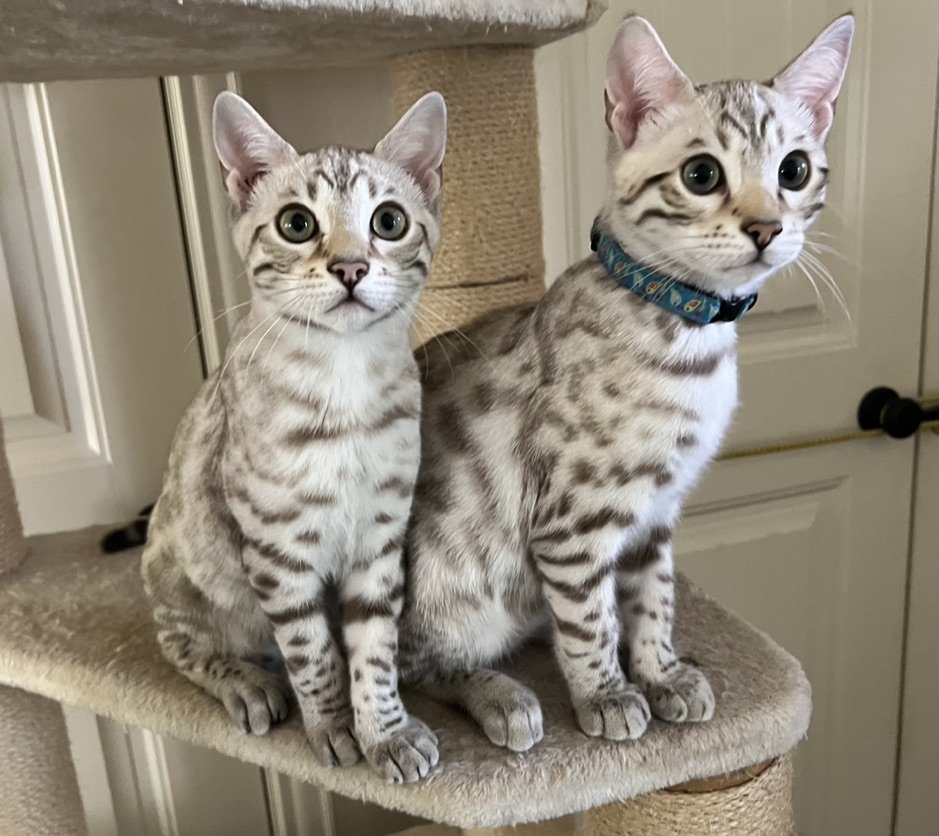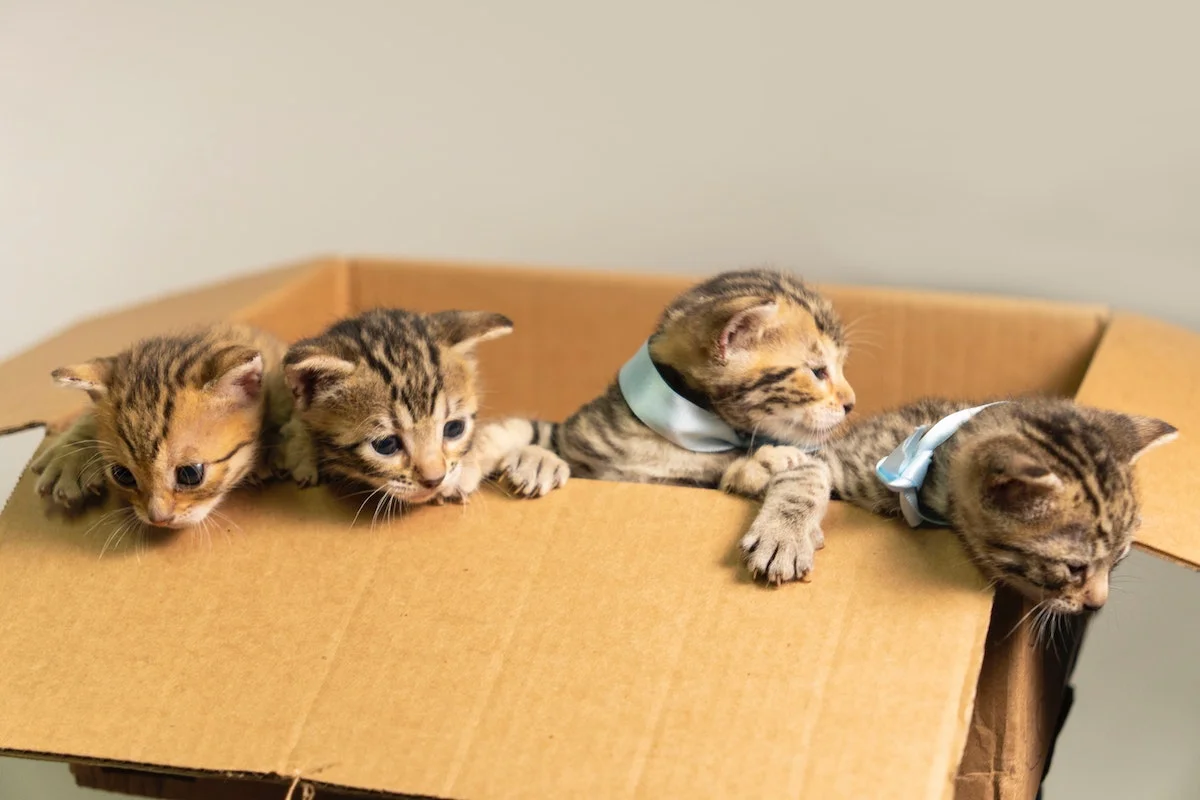Bengal cats have gained popularity among cat owners over the years. Are you planning to travel internationally with your Bengal cat as your pet?
While it can be a bit complicated, it’s essential to familiarize yourself with the pet import regulations of the country you intend to visit before making travel plans with your Bengal cat or kitten. Since Bengal cats are hybrid cats, it’s crucial to check if the country you plan to visit allows the import of hybrid animals, such as Bengal cats.
If you’re searching for a reliable breeder of Bengal cats in Dallas Fort Worth, Texas, you’ve come to the right place. Here at Lone Star Bengal Cats, we will provide you with some valuable travel tips when journeying with a Bengal cat. If you’re interested in learning more, continue reading below to find out.
What are Bengal Cats?

Bengal cats are hybrid felines, resulting from the crossbreeding of a domestic cat and an Asian Leopard Cat, a wild feline native to Asia.
The International Cat Association officially recognized Bengal cats as a new breed in 1986. Due to their relatively recent wild ancestry, Bengal cats are often considered to have a more untamed nature compared to other domestic cat breeds.
Are Bengal Cats Allowed to Be Imported Into Different Countries?
When considering international travel with your Bengal cat, it’s important to note that their filial ratings, often denoted as F ratings, play a crucial role in import regulations. These ratings indicate how many generations removed a Bengal cat from its wild Asian Leopard cat ancestor is.
An F1 Bengal, for instance, represents the first generation of offspring from a wild Asian Leopard cat and a domestic cat. F1 Bengals are considered half-domestic and half-wild, typically restricted to breeding purposes rather than pet ownership. Consequently, some countries prohibit the import of F1 Bengal cats.
F2 Bengal cats result from breeding an F1 female Bengal with a male domestic cat, and the pattern continues with F3, the offspring of an F2 female Bengal bred with a male domestic cat, and F4, the offspring of an F3 female Bengal bred with a male domestic cat. As a rule, Bengal breeders don’t typically sell cats from the F1 to F3 generations, and many countries do not permit their import.
Countries like Australia, the European Union, Hong Kong, and Singapore, however, do allow the import of Bengal cats that are at least five generations removed from their wild ancestor, the Asian Leopard Cat. In such cases, having official pedigree papers can serve as evidence of your Bengal cat’s generation (F5 or higher), making them eligible for international travel.
How to Travel with a Pet Bengal Cat

When planning to travel internationally with your Bengal cat, it’s crucial to adhere to the import regulations of your destination country. These regulations can vary significantly from one country to another and may depend on both the origin and destination countries.
Typically, import regulations across most countries include the following:
Vaccinations
Your Bengal cat must be current on all mandatory vaccinations, which often include calicivirus, feline viral rhinotracheitis, rabies, and panleukopenia.
Some countries may also require additional vaccinations for diseases such as Bordetella, chlamydia, feline immunodeficiency, and feline leukemia.
An up-to-date vaccination record is a primary requirement for international pet transport. It’s important to ensure your Bengal cat’s vaccinations are kept current even if you’re not planning to travel to maintain their protection against diseases.
Microchip
To travel internationally, you’ll need to have your Bengal cat microchipped. This is an identification device implanted under the cat’s skin, typically between the shoulder blades.
The microchip contains essential details about your pet, such as their breed, vaccination status, health records, and your contact information as the owner. Make sure to obtain an ISO-compliant microchip for your Bengal cat, as it is often a mandatory requirement for international pet travel.
Crate Training

Bengal cats can be quite feisty and temperamental due to their wildcat ancestry. To prepare them for international travel, it’s essential to engage in crate training. Purchase an IATA-compliant travel crate for your Bengal cat and introduce them to it well before your journey.
The crate should be spacious enough to allow your Bengal cat to stand, move around, turn comfortably, and lie down with ease. Crate training is a crucial aspect of preparing your Bengal cat for international travel and ensuring their comfort during the journey.
Official Documents
Official pedigree documents for your Bengal cat are vital for international pet travel. These records are often overlooked by cat owners, potentially hindering their Bengal cat from entering their destination country. Ensure that the documents are legitimate and officially certify that your Bengal cat is an F5 generation or higher.
Other Essentials

When traveling with your Bengal cat, pack extra blankets or towels, and include disposable absorbent pads at the bottom of the carrier. Bring a familiar litterbox and use the same type of litter your cat is accustomed to at home.
Bengal cats can be sensitive to changes in scent, so using different litter or a new litterbox might cause anxiety. It’s also a good idea to carry unscented baby wipes for any necessary cleanups.
If your Bengal cat tends to experience anxiety during travel, schedule an appointment with your veterinarian to explore options for prevention and treatment.
Even if your Bengal cat doesn’t typically exhibit anxiety, it’s wise to consult your vet regarding medication or supplements that might be beneficial during travel. The vet will consider your cat’s age, behavior, and overall well-being when making recommendations.
If supplements or medication are prescribed, it’s advisable to test them while at home before your international journey to ensure your Bengal cat can tolerate them without undesirable side effects.
Traveling abroad with a Bengal cat can indeed be challenging and stressful. Therefore, it’s crucial to entrust a reputable, high-quality, and award-winning cattery like Lone Star Bengal Cats, located in Dallas Fort Worth, Texas.
We pride ourselves on providing authentic documentation for our Bengal cats and kittens, along with comprehensive health testing to safeguard them against various diseases, including DNA testing at Optimal Selection Genoscoper, FIV (Feline Immunodeficiency Virus), FeLV (Feline Leukemia Virus), and PRA-b (Bengal blindness).
If you have any questions or inquiries about our Bengal cats and kittens, please feel free to get in touch with us using our contact form. If you’re in search of an award-winning breeder of Bengal cats and kittens in the Dallas Fort Worth, Texas area, look no further than Lone Star Bengal Cats.
You can reach us by calling 817-602-4807 or by sending an email to marla@lonestarbengals.com. Our cattery is located between Weatherford and Springtown in Parker County. Choose Lone Star Bengal Cats, and we can help you find the perfect Bengal cat or kitten for you and your family. So, why wait? Contact us today

